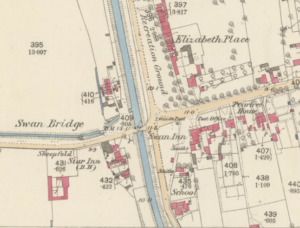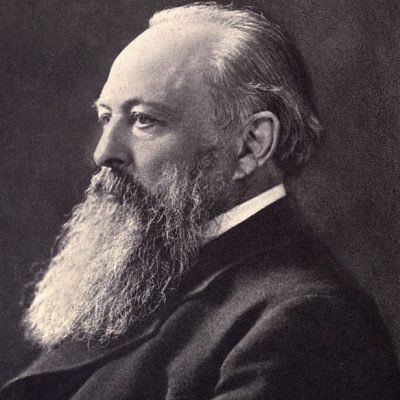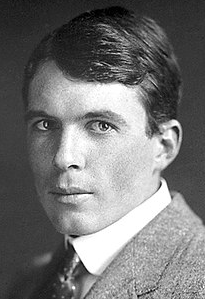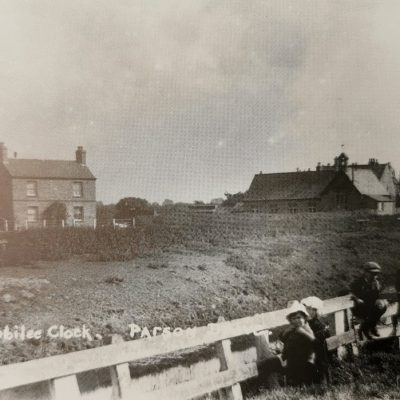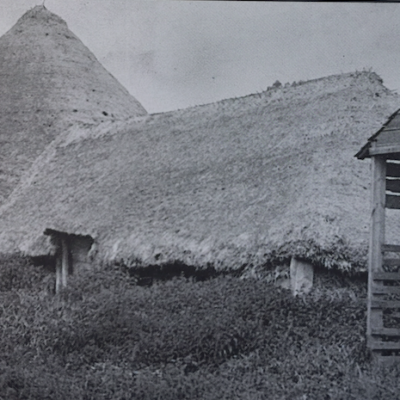Search by topic
- archaeology
- Building of Local Interest
- charity
- church
- crime
- dressmaker
- fire
- Great Eastern Railway
- Listed building
- Mapping Relief
- medieval
- oral history
- poverty
- Public House
- Rattee & Kett
- Religious House
- Roman
- scholar
- school
- Then and Now
- tudor
- women
- work
- world war one
- world war two
Search by text
Swan Inn, Parson Drove
History of the Swan Inn
1663 17th September. Samuel Pepys, his uncle and cousin, came to Parson Drove to discuss family business with his Uncle and Aunt Perkins, who lived in poverty in the village. His Aunt Beatrice had recently inherited a lot of wealth from their relation John Day of Wisbech.
17.9.1663: Up, and my father being gone to bed ill last night and continuing so this morning, I was forced to come to a new consideration, whether it was fit for to let my uncle and his son go to Wisbeach about my uncle Day’s estate alone or no, and concluded it unfit; and so resolved to go with them myself, leaving my wife there, I begun a journey with them, and with much ado, through the fens, along dikes, where sometimes we were ready to have our horses sink to the belly, we got by night, with great deal of stir and hard riding, to Parson’s Drove, a heathen place, where I found my uncle and aunt Perkins, and their daughters, poor wretches! in a sad, poor thatched cottage, like a poor barn, or stable, peeling of hemp, in which I did give myself good content to see their manner of preparing of hemp; and in a poor condition of habitt took them to our miserable inn, and there, after long stay, and hearing of Frank, their son, the miller, play, upon his treble, as he calls it, with which he earns part of his living, and singing of a country bawdy song, we sat down to supper; the whole crew, and Frank’s wife and child, a sad company, of which I was ashamed, supped with us. And after supper I, talking with my aunt about her report concerning my uncle Day’s will and surrender, I found her in such different reports from what she writes and says to the people, and short of what I expected, that I fear little will be done of good in it. By and by newes is brought to us that one of our horses is stole out of the stable, which proves my uncle’s, at which I am inwardly glad — I mean, that it was not mine; and at this we were at a great loss; and they doubting a person that lay at next door, a Londoner, some lawyer’s clerk, we caused him to be secured in his bed, and other care to be taken to seize the horse; and so about twelve at night or more, to bed in a sad, cold, nasty chamber, only the mayde was indifferent handsome, and so I had a kiss or two of her, and I to bed, and a little after I was asleep they waked me to tell me that the horse was found, which was good newes, and so to sleep till the morning, but was bit cruelly, and nobody else of our company, which I wonder at, by the gnatts.
18.9.1663: Up, and got our people together as soon as we could; and after eating a dish of cold cream, which was my supper last night too, we took leave of our beggarly company, though they seem good people, too; and over most sad Fenns, all the way observing the sad life which the people of the place which if they be born there, they do call the Breedlings’ of the place, do live, sometimes rowing from one spot to another, and then wadeing, to Wisbeach, a pretty town, and a fine church and library, where sundry very old abbey manuscripts; and a fine house, built on the church ground by Secretary Thurlow, and a fine gallery built for him in the church, but now all in the Bishop of Ely’s hands.
1834
Charles Boucher
This was the location of the inquest into the murder by Augustus Hilton of his wife in 1861.
Cambridge Independent Press 9.3.1861:
DREADFUL MURDER AT PARSON DROVE, Cambs. Parson Drove, a village of considerable pretensions, situate about five miles from Wisbech, was, on Saturday night last, thrown into state of extreme excitement, by the occurrence of a most fearful crime, perpetrated by a man in a respectable position in life, and surrounded by every accessory to comfort and happiness. The crime was not less one than murder, the criminal being Augustus Hilton, son of Mr. Hilton, farmer, of St. Edmunds, and his victim his own wife, daughter of Mr. Charles Barnes, railway contractor and miller, formerly a resident at Parson Drove. Mrs. Hilton had not been married more than two years, and during that time her lot has not been of the happiest character ; for her husband is a man of very excitable temper, and quarrels between them were of frequent occurrence. On the day of the murder, they had kept up a quarrel for several hours, and it ceased only with the life of the unfortunate woman. Perhaps the blackest feature in the whole case is, that the poor woman was, at the time she was murdered, within two or three weeks of her second confinement. Her husband followed her upstairs, and cut her throat, after which he walked deliberately through the house and out on to the road, informing two or three persons of what he had done with the most cold-blooded indifference. On Monday, an inquest was held at the Swan Inn, before W. Pratt, Esq coroner, and the investigation occupied the whole day; it being then incomplete, adjournment until Friday next took place. On Tuesday morning, at ten o’clock, the prisoner was brought before three of the Isle Magistrates, at Wisbech. J. Cox, Esq., chairman; the Rev H. Jackson, and C. Boucher, Esq., were the Magistiates present. The Sessions House was densely packed with spectators, and crowds of persons, unable to obtain admittance, waited outside to Iearn the result of the hearing. All the evidence given at the inquest, was repeated, and taken down in the form of depositions, and as it affords the most ample information concerning the whole circumstances of this most painful occurrence, we give it as fully as it was then taken. Mr. Ollard was present to watch the case, on behalf of the prisoner. Order having been secured, and the Magistrates taken heir seats, the following witnesses were called:— Mr. Charles Barnes, sen., sworn : I have lately resided in the parish of Morton, in Derbyshire. My daughter’s name was Charlotte, and she was married to the prisoner, Augustus Hilton. The last time I saw her alive was about six week agos ; I saw her body yesterday, in the house she and her husband lived in Parson Drove. Susannah Tooke sworn : I am a single woman, and servant to Mr. Charles Barnes. I lived with his late daughter wife of prisoner. On Saturday last, at about ten o’clotk in the morning, prisoner and his wife left home together in a gig. They did not live happily together, and were quarrelling when they left home that morning, and also when they returned at about half past four in the afternoon. They quarrelled about money — he complained that she had not given him enough to pay for some wheat, and she said “Why did you not ask me for it at Wisbech, and I would have given it to you ?” He then said “Take the slate and write down what I wanted.” She did not get the slate, but went up stairs and took her things off. She came down again and had tea while prisoner sat by the fireside, drank a glass of cold water, and smoked a pipe of tobacco. He did have tea with her when they were friendly, but never when they quarrelled. Before she finished she poured him a cup of tea out, which he did not drink, but let stand till it got cold; then said to her “Will you pour another cup out? ” She said “No, I won’t; you have been slandering me all the time I was at Wisbech, and do you think I am coming home to wait on you in this way ? No, I won’t; I’ll die first.” He said in reply “So you shall.” After that he said ” May I have an egg ” She said “Yes, if you like, and welcome.” I went and fetched three eggs which I boiled for him, and he ate them, and then asked Joseph Barnes, who was present, to pour him a cup of tea out. Joseph pushed his head in play, and said “Yes, Gussy, I will,” and he poured it out for him. Prisoner did’nt take it, but kept repeating to his wife, “You knew which you ought to have given me; you have got it.” I then cleared away the tea things, and he told his wife again to get the slate. She said “If I do, you won’t tell me what to set down.” He made no reply to her, but ordered me to fetch a pint of ale, telling George Barnes, a child only ten years old, who was in the kitchen, to go with me, but my late mistress heard him, and said ” No, George, you stop in with me.” Joseph Barnes had gone out of the house before this, but came in again about this time; I had begun to put my things on to go for the beer. My late mistress said to Joseph ” Go and tell Tom Snow to put the mare in the gig again, for I mean down to Aunt’s to-night.” Joseph said “No, you had better not go, it so windy and rainy.” She said, “Yes, I will, for if stop at home he won’t let me have any peace,” and Joseph left to give Tom orders, and I left to fetch the ale. I was away about ten minutes, and when I left the house she was sitting on one side of the fireplace and he on the other, but when I came back he had moved to the other aide and was sitting close to her and face to face with her. I put the beer down upon the table, and he drank part of it, when again he asked his wife to get the slate, and she did fetch it, saying—” What am I to put down?” said—”You know what to put down, why don’t you put it down ?” She laid “Do you mean tell me ?” and put up the slate, while he repeated his previous words. She turned cross, and went up stairs without saying anything ; he got up immediately and followed her, shutting the kitchen door after him. The kitchen door opens into a passage leading to the staircase. This time it was about 7 o’clock. When they had been upstairs about a qusrter of an hour, Tom Snow came in and said he had got the mare ready, and I said to George Barnes—”You had belter go ap stairs and tell Charlotte that Tom has got the mare ready.” Tom said—” No, you had better not, she will be down directly.” Then I heard the prisoner’s bedroom door bang to, and I said, George, you had better go up, perhaps he is doing something to her.” Then I heard her scream, and ran up stairs; Tom Snow followed me, and I tried to get into the bedroom, but the door was fastened inside. I heard a groan, and the noise of scuffling upon the boards. I ran down stairs immediately and knocked at Mr. Billings’s door, who lives next to us. Then I ran to fetch Mrs. Jealous, and stopped at her house about ten minutes. While there I saw prisoner leave his house, walking in his usual manner. Some one said, “Oh, here is the man,” and prisoner said “Yea, I have done it.” I said to him—”Yes, and you will have your neck stretched, too,” but he walked on without speaking. I went with Mrs. Jealous back to the house. When went into the kitchen we found the account books on the fire. We took them off, and I put some water over them, while Mrs. Jealous went upstairs. I did not go upstairs till next morning, when I saw the body of my late mistress lying upon the mattress in her bedroom, with her throat cut. The bedronm in which the deed was done, is up three flights of stairs from the kitchen.
Joseph Barnes said : I am 15 years old, and am a brother of the late Charlotte Hilton. I lived at Parson Drove with my sister and her husband ; they did not live happily together. They left home on Saturday morning a little before 10, and returned in the afternoon between 4 and 5 o’clock. I saw them both get out of the gig ; prisoner was not drunk, but I thought he had had some drink, because he was different to what he was when he went out. I was at the mill about 7 in the evening, when I heard something that made me go to sister’s house. I went directly my sister’s bedroom, put my hands against the door and it came open. On the door opening I saw prisoner and my sister. My sister lay on the bed with her throat cut, and the blood running from the wound; prisoner was coming from her towards the bedroom door. He spoke to me and said—” Look you there Joe, I have done it.” I turned round and ran down stairs to the mill for assistance, and returned with the miller, Richard King, and met prisoner at the kitchen door as we entered. I said to him—” Get out, you villain.” King said “Oh dear, master, what is the matter,” or some such words. Prisoner said—’ Oh, you go up stairs, and you will see.” I and King went up stairs to my sister, who was still alive, but bleeding from the throat. She was unable to speak, but I left her alive, and ran for Mr. Sturkey. Saw no more of prisoner until to-day. When I first saw my sister I spoke to her, and she made an attempt to reply, but could only make a gurgling sort of noise. I observed blood on prisoner’s face when I met him in the doorway.
Cross-examined : I have lived in the same house with prisoner for about six months. When I first went upstairs I put my hands against the bedroom door, and it came open, but I cannot say whether I used force to get it open or not. When prisoner came home on Saturday, he appeared to have had some drink. He was a man of excitable temper and easily put out, but cannot say he is more so at one time than another. By the Bench : I did not notice whether my sister had her bonnet on or not. Prisoner was not so drunk not to know what he was about.
John Thomas Snow, sworn :—Am 20 yeas old, and live with Mr. Barnes, at Parson Drove mill, near the residence. On Saturday night, about seven o’clock, I received a message about putting the mare into the gig. I put the harness on the mare according to my mistress’s orders, and then went to see if she was ready. Neither mistress nor prisoner were in the kitchen, and I sat down against the fire; Susannah Tooke and George Barnes were there. I sat thereabout ten minutes, when I heard a door banged to upstair!. We did not take particular notice of that; but in a few minutea after we heard shrieks from upstairs. Susannah Tooke and myself ran up the first flight of stairs, stood there about half a minute, heard shrieks again, and then ran quite upstairs to the door of the room which I knew to be the prisoner’s sleeping-room. I heard groan from the room ; Tooke tried to open the door but could not, and we ran downstairs to the mill for King and Joseph Barnes. They came to the house and went upstairs while I went to Mr. Sturkey. I went for the doctor because Joseph Barnes, who had gone into the chamber, called out to me and told me to go.
Beth Smalls, sworn, am the wife of James Smalls, who is a saddler at Parson Drove. Was at Mr. Billings’s shop on Saturday evening at about quarter to seven in that shop adjoining the house occupied by prisoner and his wife ; it | is part of the same house. At about this time I heard some one scream “murder,” apparently from the upper part of prisoner’s house. We heard that cry only once, and spoke to Mr. Billings about it; but directly after we heard a scream and a scuffle. I was going out of the door when met Susannah Tooke, and in consequence of what she said, I and Mrs. Billings went to the prisoner’s house and went upstairs from the front door, where I heard some one calling out, ” come, somebody.” I then went to bedroom, the door which was open and when I went in, saw Richard King supporting Mrs. Hilton, who sat op on the bed. She was bleeding from the throat, and died in about a quarter an hour. She was near to her confinement. After her death I assisted in undressing her, and I delivered the clothes taken off her to Mr. Stocking that night. They were covered with blood, and were in the same state when I took them off.
By the Bench :—She was unconscious when I went in and she had no bonnet on ; but there was lady’s hat laying at the foot of the bed. Richard King had put a handkerchief round her neck to staunch the blood; and as he thought it was too light, he asked me to see to it. I did so, and saw the wound her throat.
Richard King said: I live at Parson Drove, and am foreman at Mr. Barnes’s mill there, which stands near to prisoner’s house. Last Saturday evening, between six and seven o’clock, I received, while at the mill, a message which induced me to go to prisoner’s house. When I got to the kitchen I met the prisoner ; Joseph Barnes was with me. Prisoner said, ” You may go upstairs, I have done the job.” I said, “Surely to the Lord you have not done a deed like that.” No other observation was made, and I hastened up to bedroom, Joseph Barnes following me. Mrs. Hilton then lay across the foot of the bed, with her head hanging down over the side the bed, and blood issuing from wound in her throat. I raised her up, laid her head upon shoulder, took my neckerchief from neck and tried to stop the blood by twisting it round her neck. I cannot say that I spoke to her, but she could not speak a word. The only sign she made was to raise her eyelids two or three times while her head lay against my face. She did not move her hands at all when I lifted her up. I supported her until Mr. Sturkey came, and remained there in all about a quarter of an hour.
The Bench :—Mrs. Hilton kept the accounts of the mill business, and prisoner bought corn for it. Mrs. Hilton and her brother Joseph had charge of the moneys derived from the business.
Hannah Jealous said : I went to prisoner’s house last Saturday night, about 7 o’clock, and met the prisoner in the kitchen; he was there alone, standing with his back to the fireplace. He said, “Well, Mrs. Jealous, I have done the job.” I said,”Oh, dear, Mr. Hilton, what have you done?” He said, ” I have done it, and am willing to be hanged for it.” Nothing more was said by either of us. He took a pitcher off the table, and drank something, as I walked out of room. I did observe that there was blood upon his hands and face. There was a large fire in the grate but I did not see anything freshly put on it. Prisoner followed me out of the kitchen, and went towards his father’s house at St. Edmund’s. He did not run, but walked away; he was not at all strange in hits manner; he was much as usual; did not seem to tipsy either. I have known him for these 10 or 12 years.
David Billings, sworn : I live at Parson Drove, and occupy a shop, which is part of the house prisoner lately occupied. Bethia Smalls was in my shop on Saturday evening, and while she was there, I heard cry “Murder” and directly afterward, loud screams and scuffling, which appeared to come from an upper room in the prisoner’s house. I heard my name called by the girl Tooke, and went for assistance. Saw prisoner come out of his yard gate; he said lo me, ” Here I am, I have done the job,” and he went on in the direction of St. Edmund’s. I returned my shop, and my wife and Miss Smalls went into prisoner’s house.
Mr. Henry George Sturkey said: I am a surgeon, at Parson Drove. At a few minutes before 7, on Saturday evening, was sent for to prisoner’s house. found MrsHilton upstairs on the bed; she was alive then, but evidently dying. Her throat had been cut with a sharp instrument, so that the jugular vein was divided, which was the direct cause of death. She died a few minutes after I got there. She was within a few weeks of her confinement. I was sent for to see the prisoner at his father’s house, at eleven o’clock night. He was then much under the influence of drink. He had been drinking at his father’s house, and I advised him not to drink any more.
George Lake, p.c sworn: Am stationed at Parson Drove. On Saturday night, in consequence of information received, I went to prisoner’s house, where I saw Richard King. From what he told me, I went in search of prisoner. Found him al his father’s house, at St. Edmund’s, at about 9 o’clock. He was sitting by the fire smoking a pipe and drinking brandy-and-water. On seeing me, he said, “Then you have come for me, have you ?” I said ” Yes.” He said, ” I have done it, have’nt I? Is she dead !” I said, “Yet, she is.” And he said, “Then, I’ll die too. I shall not make any resistance; I will go quietly with you wherever you like. I remained in the house with him till a conveyance was obtained, when I brought him to Wisbech. On the way, he said lo me, “This is her father’s fault; he brought it on himself, an old fool.” He asked how they hanged people, and whether I thought he should be hanged. When I took him, there was blood upon his shirt sleeves, but I did not observe blood anywhere else about him. I took a knife and sharpening-stone from his pocket; neither of them are marked with blood; nor does the knife appear to have been sharpened. He seemed rather the worse for drink when I took him. There is large drain between his own house and his father’s.
Sup’t Stocking said: At midnight on Saturday, I received information of this murder, and drove directly to Parson Drove. Went into a bedroom, and there saw the body of a female. Mrs. Smalls and Mrs. Hibbling went upstairs with me. I received from Mrs. Smalls a female’s clothing and woman’s hat, which I have kept in my possession ever since both clothes and hat are covered with blood, and they all laid on the floor of the bedroom. I observed blood upon the handle of the bedroom door inside, which looked as if the door had been opened by hand with blood on it. There was a bolt as well as a lock on the door. On the floor of the room there was a good deal of blood, and there were marks of blood on the door just above the bolt. The room is about 15 feet square, and is about 30 yards from the kitchen, up three flights of stairs. There was good deal of blood on the floor of the bedroom, about 4 feet from the door. Took prisoner’s clothes from him at about seven o’clock next morning, and now produce them; the sleeves of his shirt, the from of his coal and waistcoat, well as his trousers, are all stained with blood. When I entered his cell the prisoner said “Is not that Mr. Stocking?” I said, “Yes it is.” He said “When shall I be hanged. I want to die, I want to go to my wife.” I asked him no questions, and made no observations upon what he said.
Mr. Thomas Wilson, keeper of the lockups, deposed to having received prisoner from p.c. Lake, and been present when Supt. Stocking changed his clothes. Prisoner was then charged, this being the whole case for the prosecution, and after he had received the usual caution he said in an off-hand manner, “I want to go to my Charlotte, that’a all.”
The Chairman then told prisoner that he stood committed for trial at Cambridge Assizes for the wilful murder of his wife, when prisoner said “I am willing die” or words to that effect. The Chairman, at the same time, observed that he understood some remarks had been made by the coroner, complaining of the conduct of the police; and his brother magistrates were quite satisfied with the course pursued by the officers, and thought much credit was due to Supt. Stocking for the manner in which the case had been managed. The witnesses were bound to over appear at the Assizes, and the Court rose. Great numbers of people waited outside the Court to catch a glimpse of prisoner as he entered the fly that awaited him.
See also Cambridge Chronicle and Journal 10.8.1861 about attempted appeal to Home Secretary. Hilton was executed on the morning of 10th August. See Cambridge Independent Press 17.8.1861 about Rev Clayton’s sermon on the execution.
Contribute
Do you have any information about the people or places in this article? If so, then please let us know using the Contact page or by emailing capturingcambridge@
License
This work is licensed under CC BY-NC-SA 4.0





